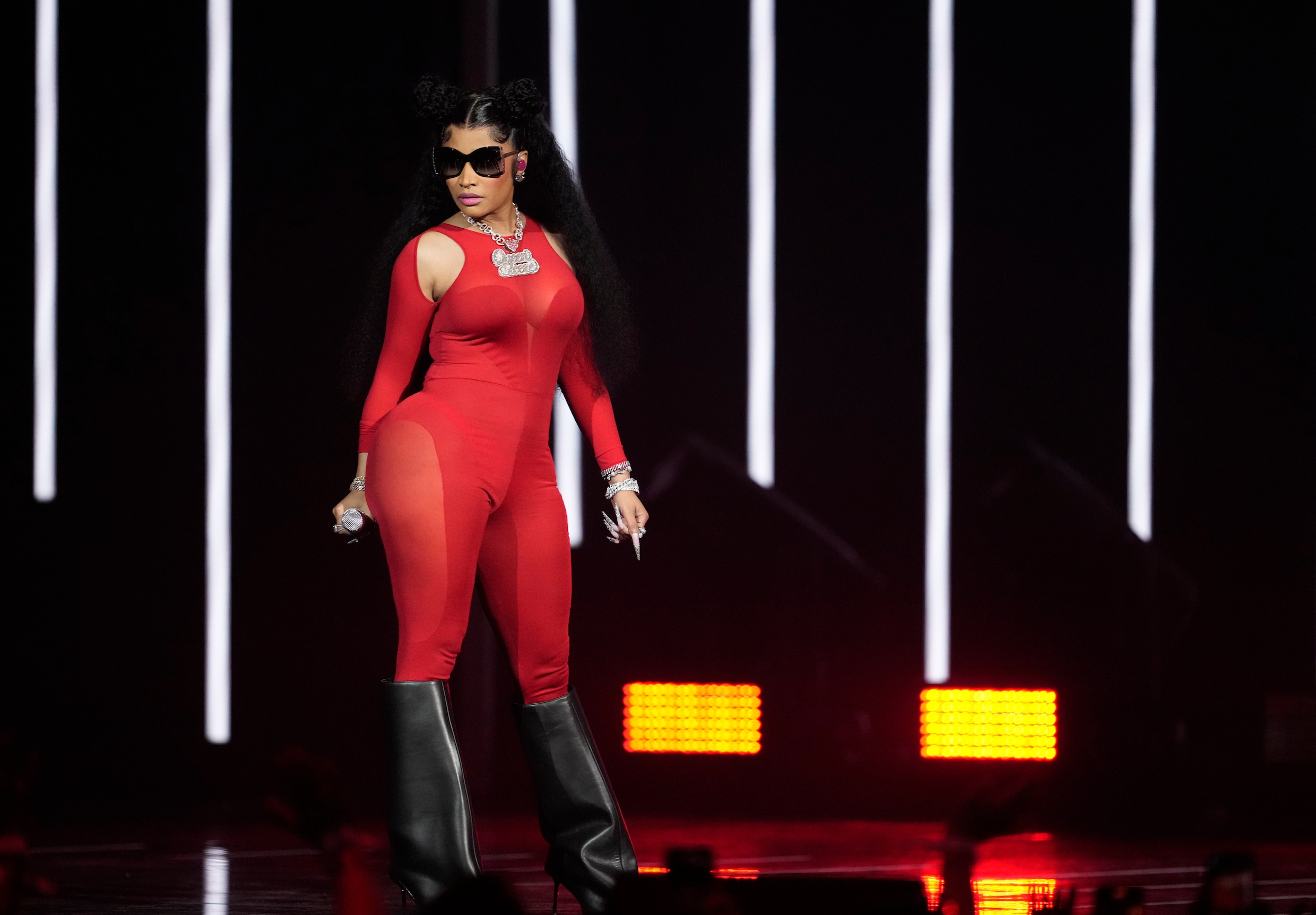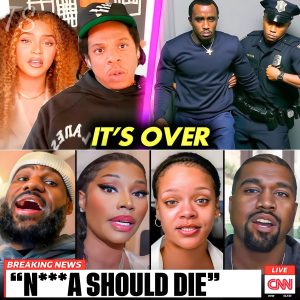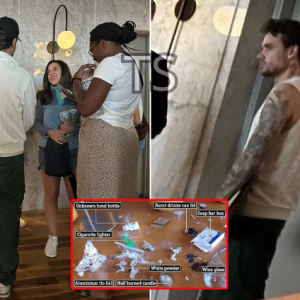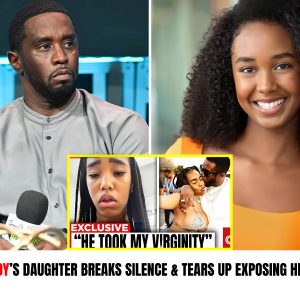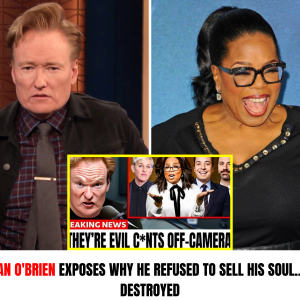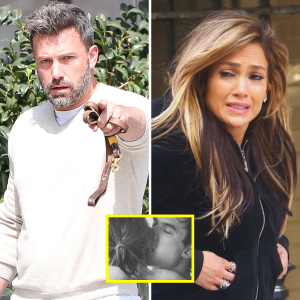
Photo: Jeff Kravitz/Getty Images
“All the girls will commend as long as they understand
That I’m fighting for the girls that never thought they could win
’Cause before they could begin, you told ’em it was the end
But I am here to reverse the curse that they live in”
— “I’m the Best” (2010)
“Who the fuck told bitches they was me now?
I knew these bitches was slow, I ain’t know these bitches senile
Married a shooter case you niggas tried to breathe loud
Boom your face off, then I tell him ‘cease fire’”
— “Red Ruby Da Sleeze” (2023)

Nicki Minaj arrived in a rough patch for women in rap. The mid-aughts had been a bloodbath. Lil’ Kim and Remy Ma went to jail. Foxy Brown lost her hearing and Def Jam deal. Eve pivoted to television. “Why isn’t there a female rapper turned mogul?,” Nicki asked in Nicki Minaj: My Time Now, a 2010 MTV documentary about her debut album, Pink Friday. Hip-hop has always had a finite number of positions of power open to women. Nicki adapted in the way they often get a foot in the door: She out-rapped a lot of men, stealing the show from the murderers’ row of titans featured on My Beautiful Dark Twisted Fantasy’s “Monster.” Pink Friday landed a month later, minting her as a many-headed menace. She could do bubbly love songs and diabolical diss tracks, and, like the Diplomats, favored kooky samples. She scrambled the circuits of pop fans who weren’t used to the staged wig removal of “Roman’s Revenge” and ruffled the feathers of hip-hop heads uncomfortable with all the singing on “Save Me” and “Your Love.” It’s been this way for her ever since, opposing factions tugging her in equal and opposite directions.

More recently, Nicki has thrived on chaos, and years of disputes with women whose careers have sprung up in her wake give Pink Friday 2, her fifth album, a more combative air than the work inspiring it. She has smoke with Latto for leaking their private conversation and the apparent haphazardness of the Grammys classifying “Super Freaky Girl” but not “Big Energy” as pop; Cardi B, a volatile schism dividing New York heavyweights and their affiliates and fandoms that no party can reasonably unpack; and, for whatever reason, Megan Thee Stallion. The quarrelsome bits of the album often slide because Nicki is a gifted rapper but also because she seems to relish making people squirm, a quality reinforced every time she’s green-lit fans to go after someone or took time to press another rapper.
As queenships go, Nicki Minaj is running shit like Hillary Clinton. She ascended into rooms where women weren’t welcome, while earning intense criticism for hawkish foreign policy and devotion to a husband the audience doesn’t trust. (Kenneth Petty, the childhood friend she married in 2019, was registered as a sex offender for a 1994 rape he served four years for; the accuser sued the couple in 2021, saying that they tried to strong-arm her into help with getting him off the registry.) As a new mother, she has also had her house swatted, validating the choice not to tell us much about her son, for whom we only have the nickname “Papa Bear,” a somewhat impressive feat for the TMZ era. Pink Friday 2 is grappling with all of this as much as it is gesturing to a beloved juncture in her journey. There’s a Bonnie and Clyde air that didn’t exist when she was dating Safaree or Meek Mill. But no one with sensible or psychotic reasons to hate her has been successful at getting her out of the paint. Pink Friday 2 wants you to know that. It wants you to feel like all the other brands are knockoffs.
“Barbie Dangerous” — built around a loop of Life After Death’s “Notorious Thugs,” a New York staple — quickly identifies one of the album’s core themes: “Hit the road, E-X-I-T / My flow, they B-I-T / Shots thrown but I-D-C / Go home or do it B-I-G / My throne, they can’t S-I-T / My crown, you can’t F-I-T.” The sentiment surfaces at unlikely moments. “Cowgirl,” a sex rap on a Dr. Luke track, lets one off at random: “Copycats crunchy like a apple / Excuse me, what I gotta do to show these bitches don’t amuse me?” “Red Ruby Da Sleeze,” the hit Lumidee flip, contrasts a sweet hook with tough verses: “When the queen leave, bitches wanna come out like a cockroach / Until I’m cookin’ in the kitchen like a pot roast / That new Spectre, we don’t fill potholes / Dorito bitches mad that they nachos.” Megan Thee Stallion appeared in the chip company’s Super Bowl ad in 2022, and there is speculation she’s the subject of the “Stay in your Tory Lane, bitch, I’m not Iggy” line in the Waka Flocka Flame–sampling “FTCU.” Much like Drake’s For All the Dogs, Pink Friday 2 hyper-focuses on everything going wrong for someone with a lot to celebrate, who hasn’t gone without a top-ten hit in 12 of the last 13 years.
When it isn’t feeding its appetite for destruction, Pink Friday 2 can be soft and reflective, inviting us to survey Nicki’s triumphs and tragedies. Opener “Are You Gone Already” laments Papa Bear never getting to meet her father, Robert Maraj, who was killed in a hit-and-run in 2021. Closer “Just the Memories” painfully touches on an addiction developed after being prescribed Percocet for cramps: “I could’ve overdosed, could’ve been comatosed / Wait, hold on, Juice, I feel the baby kickin’, holy smokes.” The last line in the album’s final verse — “If they ask about me, tell ’em I was one of one” — ponders her future legacy the way Pink Friday’s “Dear Old Nicki” reflects on the past. A sequel doesn’t need to re-create all the unique conditions of the original work. It only has to give greater scope and development to the characters we met the first time. Pink Friday 2 says Nicki is under scrutiny and dogged by competitors but still able to joust in any setting. She can preen over Blondie and Cyndi Lauper tracks. She can go bar for bar with Lil Wayne over slick crossover fodder like “RNB.” She can sing faith-based devotionals alongside gospel legend Tasha Cobbs Leonard, and reference classic riddims with dancehall stars Skillibeng and Skeng.
But if Pink Friday 2 feels somewhat observant of modern mainstream rap-album conventions — making sure to stuff its 22 tracks with samples that aren’t difficult to clock and tying East Coast radio rap, Southern trap, R&B, and Northeast club music to their international siblings in the Black musical diaspora — it’s partly because the first installment helped to enshrine some of these ideas as trends for a notable swath of listeners born after the ’90s. Nicki Minaj tipped the scales; she can talk shit about having to come up in conversations with people who studied her. And though she arrived a hair too early for “Your Love” and “Starships” to fly uncontested, she ended up building some of the infrastructure a new wave of women are standing on, all while men who grew up jacking off to the Lil’ Kim poster demand Lauryn Hill levels of righteousness and sophistication that male rappers can skirt and even ignore.
Several things can be true. Pervasive sexism in every crevice of hip-hop and the unfair and unreasonable expectations that it inspires will always make rap a powder keg business for women. But this does not excuse anyone from wielding their fandom like bullets in the chamber of a gun. Infighting only reinforces the notion that only so many women can have a spot in the industry. It is, however, longstanding hip-hop tradition to come for whomever, whenever, and as much as it worsens relations, frankly, it’s New York as fuck, too. A common side effect of that Big Apple audaciousness is a reputation for querulousness and divisiveness. It’s the quality that gives everyone from 50 Cent and Cam’ron to Eric Adams and Donald Trump a sense of place. It can be a gift — U mad! — and a curse — Sad! From the White House to the corner store, hurt feelings are politics as usual. It’s not Nicki Minaj’s job to make friends with everyone while being picked apart about her age in a field where we talk a big game about honoring men in their 40s and 50s, right? Nicki is a queen for her time, a period of growing unrest and uncorked insensitivity.
But with Young Thug lyrics being used to frame his clique as a murderous criminal organization, is it smart business for anyone in this line of work with a lot to lose to be talking freely about shooters and bodies and cases? Who can trust that this rhetoric will always fall on reasonable and discerning ears? When Kim got locked up, banter on records graduated into real violence. Foxy Brown sent (rhetorical) shots in Capone-N-Noreaga’s “Bang, Bang,” and an associate of Kim’s fired a (literal) gun at Capone outside Hot 97 in 2001. She refused to snitch, and her major-label career never recovered from her time on the sideline. You entertain the darkest outcomes when you chat the wildest shit. (Who suffers when rap beef explodes? Spoiler: everyone.) As much fun as Pink Friday 2’s haughtiest lines can be, just as often, they divert attention from the meat of what kept Nicki Minaj afloat in the years where so many women like her toiled toward greater recognition in rap, the sentiment her 2009 mixtape Beam Me Up Scotty expressed beautifully in “Still I Rise”: “They don’t understand, these labels look at numbers and statistics / I lose, you lose, ma, it’s just logistics / Anyway, real bitches listen when I’m speaking / ‘Cause if Nicki win, then all of y’all gettin’ meetings.” Would the person who tore Lil’ Kim a new one for dismissing a younger artist in “Roman’s Revenge” care for the version of herself using that song’s “you play the back” line to flex on her ability to have her detractors shot? Pink Friday 2 exchanges some of the first album’s manicured pop rap for strife, turning in a different assignment than the one that was expected. The music drips with the annoyed realization that running a kingdom means building and defending walls.
Correction: A previous version of this story incorrectly stated when Meg Thee Stallion’s Doritos Super Bowl commercial aired and when Nicki Minaj and her husband were sued.
